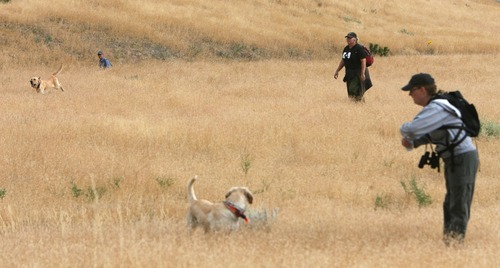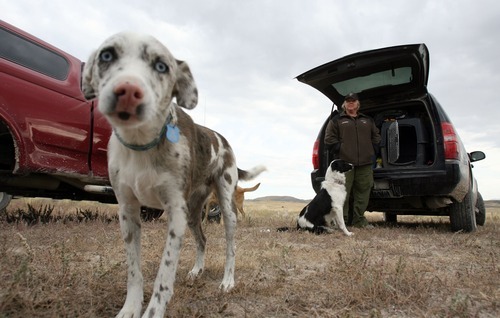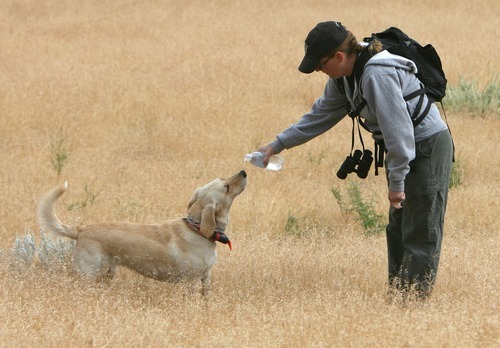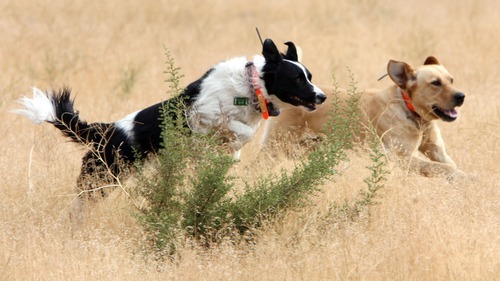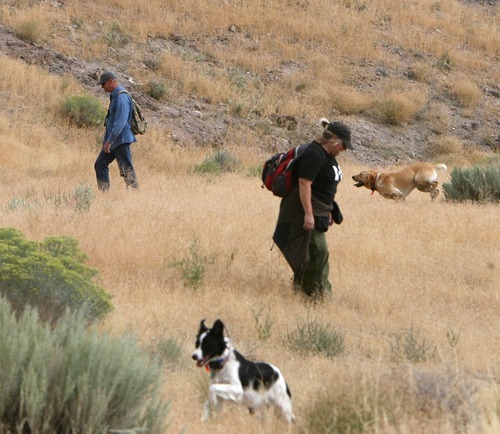This is an archived article that was published on sltrib.com in 2011, and information in the article may be outdated. It is provided only for personal research purposes and may not be reprinted.
Cadaver dogs that located human remains near Delta on Wednesday during a desert search for signs of Susan Cox Powell have been an asset to law enforcement in other high-profile cases.
Carbon County Sheriff's Deputy Wally Hendricks, who helped West Valley City detectives search the Topaz Mountain area for the missing mother, organizes the cadaver dog program for Utah. The program operates mostly through volunteers, the majority of whom have a search and rescue or other law enforcement background.
Hendricks has previously explained the dogs are trained from the time they are puppies to find the odor of human decomposition by practicing with drills where the scent is mixed in dirt. Hendricks said dogs can pick up the scent of decomposition —which can drift to the surface from deep underground — of remains from nearly a century ago.
April Morse, a detective with the Unified Police Department in Salt Lake County, has said that most cadaver dogs are border collies and Labrador retrievers, but any dog with the right personality and training can learn to be a good search animal. Both Labradors and collies were used at Topaz Mountain.
Morse was among the handlers who worked with cadaver dogs in 2009 walking the banks of a Jordan River surplus canal in Salt Lake City, hoping to find a trace of 7-year-old Trejon Fite, who fell into the canal while attempting to cross a pipe over the water. Fite's body was later recovered.
Despite what can be a grueling task, the dogs often think the search activities are a game, Morse said in an interview during the search for Fite.
"It's fun for the dog. They want to continue to hunt," she said, noting dogs are rewarded by their handlers when picking up on scents during the search process.
Morse, who helped in the search for Fite with her then 8-year-old yellow lab, Lacey, said handlers are careful to make sure their dogs don't become overworked and have plenty of water during long search days.
Hendricks' cadaver dog teams have assisted in several cases, including recovering the body of Lori Hacking from a Salt Lake County landfill in 2004. Hacking's husband, Mark Hacking, was later convicted of murder.
Cadaver dogs led officials to the bodies of homicide victims buried in shallow graves at the property of Martin Chris Nelson in Iron County in 2009. Martin Chris Nelson was later arrested and sentenced to two consecutive life terms for the shooting deaths of Derek Davis and Chad Grijalva, both 34.
Dogs also helped recover victims of the July 2009 Logan canal collapse. Jacqueline Leavey and her children, 12-year-old Abbey Alanis and 13-year-old Victor Alanis, were inside their home when a catastrophic mudslide crashed into the structure, leaving the family buried in a pile of debris. They did not survive, but dogs helped rescuers find them.
mrogers@sltrib.com Twitter: @mrogers_trib


